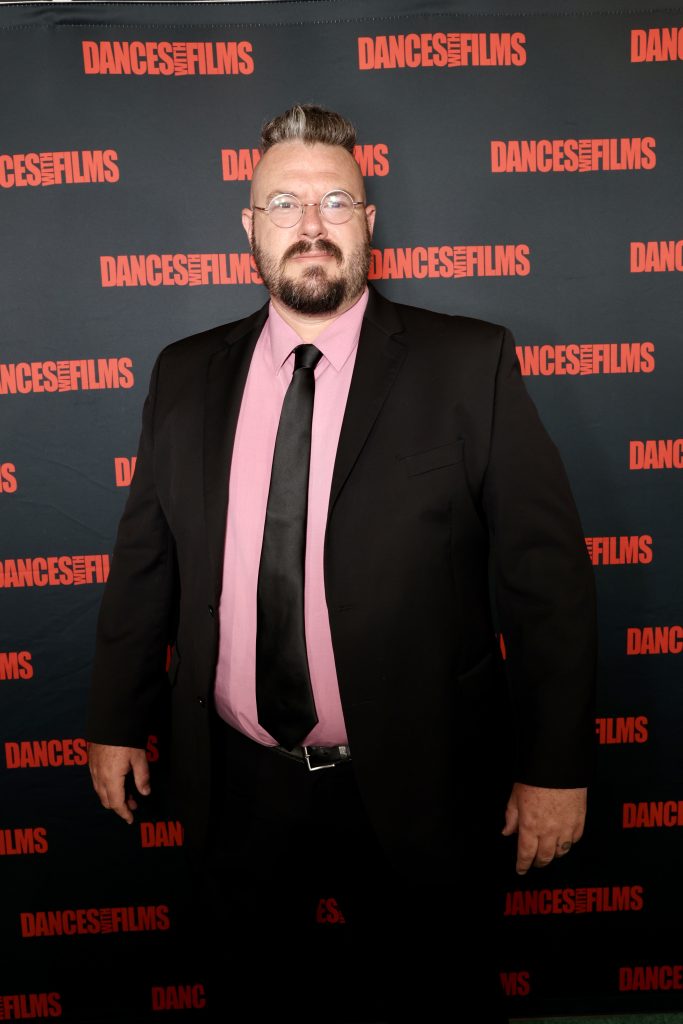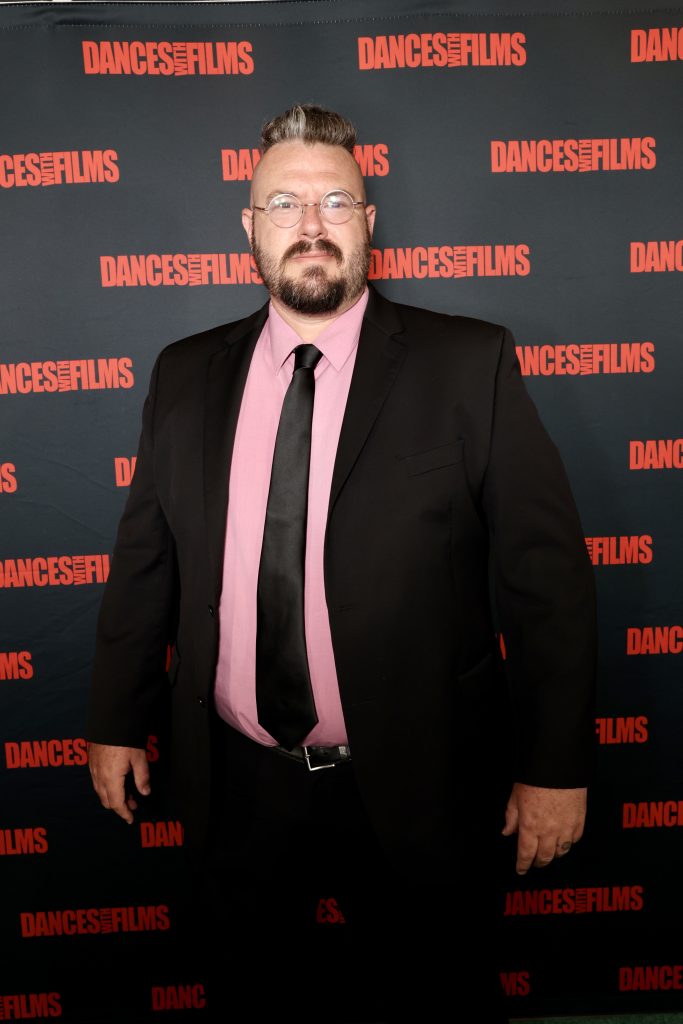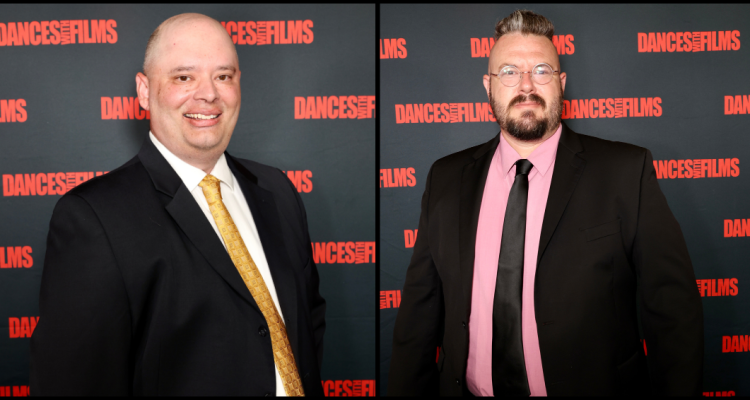Following their collaborations on The Lucky Ones and Bloodlines, Dave Merlino and Dustin Sweet have once again teamed up for the documentary film, APACHE BLUES: Welcome Home. Merlino left his career as a federal law enforcement officer and Sweet his career as a computer animator to pursue filmmaking with incredible success.
After finishing in the top ten of the Final Draft Big Break contest with their screenplay “The Lucky Ones,” and winning the Randall Wallace Round Of the Industry Insider contest with their screenplay, “Bloodlines,” the duo have a documentary film which qualified for the 2023 Academy Awards in the Best Documentary category.
A multi-year journey spanning over 30,000 miles across the continental US, APACHE BLUES: Welcome Home follows Merlino and Sweet as they meet with veterans to understand their experiences in the Vietnam War. The film, which had its theatrical release at Laemmle Theatres in Encino, has received overwhelmingly positive reviews. The duo’s artistry is on display with this carefully crafted, soulful story about the healing power of conversation.
In addition to their work as writers and directors, the duo also host the “Know Their Story” podcast. The podcast seeks to amplify the voices of veterans by having guests who were deployed and honorably (or medically discharged) from service share their experience.
Merilino and Sweet spoke to Awards Focus about the inspiration behind their work, their favorite veterans featured in the film, and how Anna Faris became involved.
Awards Focus: Tell us more about how you first got inspired to pursue a documentary about Vietnam war veterans?
Dustin: Dave and Kregg Jorgenson, one of our veterans, used to work together at US Customs and Border Protection. We had fun casting him in some of our early short films and our last one, HAPPY BIRTHDAY: DAD was on the festival circuit. It was on the way to our last festival that Kregg opened up a little about his time in Vietnam. We were looking to make our first feature film and friends were encouraging us to make a documentary about Kregg’s unit.
Dave: We started out small. Kregg came over to my house and we recorded an oral history interview at my kitchen table. Just two friends telling stories with a camera set up. We had an Au Pair living with us from South Africa who listened to the whole conversation and she looked at me with wide eyes when we were done and told me she had to hear more of these stories. Which told me we were really on to something. Then Kregg said that he really enjoyed the talk and he thought it would be great if we could record some of these for his war buddies because he thought it would help them as well. That was the very innocent start to our documentary.

Awards Focus: Who are one or two of your favorite interviewees that viewers can expect to meet when they watch the documentary?
Dave: As a father of twin girls, I know I’m not supposed to say who my favorite child is.
Dustin: Yeah as soon as we say a name we’re in trouble.
Dave: Honestly though, all of these veterans bring something amazing to the film. For them to have been so open and honest about their most personal memories, sometimes only an hour after meeting us, is truly amazing. But, in the spirit of your question, it’s not a coincidence that we open the movie with Ed Beal. There was an extra layer of raw emotion in his first interview, that even on that day I knew it was going to be special.
Dustin: I think my favorite interview would have to be Father Mike Olsen because it was so unexpected. We were thinking it might be nice to interview a priest to talk about what we can do as a community to help veterans return to society. I noticed the Cav. pin on his lapel after church one day and asked him about it. I found that not only did he serve in the Air Cav as a medevac pilot, but he was stationed at the same base at the same time as the veterans we were talking to. What a happy coincidence.

Awards Focus: One other highlight of this film is the involvement of Anna Faris and Jack Faris. Can you tell us more about your history with them and how they worked on the film?
Dave: The short answer is that Anna and I went to high school together. Shout out to Edmonds-Woodway HS Drama. But it wasn’t as straightforward as that. I graduated before her and we went our own way in life. I was Facebook friends with her brother, Bob, and he recommended we talk to their father, Jack, about the film. It was much later that Anna came onboard. So that has been a fun little benefit of this film I’m grateful for, the chance to reconnect with my high school friend.
Dustin: Yeah, when we recorded her opening dialogue, it was thirty minutes of work and ninety minutes of them joking and talking about high school. Working with Jack has been amazing though, every time he speaks I get smarter. Both his lived experience with the Vietnam war and his years in advertising really helped to lend us perspective where we needed it. What a cool guy.
Also, we have to give a huge thank you to Michael Barett, Anna’s husband. He has been an invaluable mentor for us and so generous with his time whenever we have had questions or needed help finding post-production professionals. A huge thank you for all of his help.
Awards Focus: Your film has had an impressive run from the Dances with Film Festival to Oscar consideration. How has this journey been for you and why is it important for this film to continue to be put out there?
Dave: Dances With Films was just an incredible experience and we are so thankful they put their faith in us to premiere at their festival on their closing night. And really, who could ask for a better place for your world premiere than at the TLC Chinese Theaters in Hollywood? It might sound cliche to say it was a dream come true, but it kind of hit me as we drove down the hill on I-5. Sorry that’s my Seattle roots, I should say we drove down the hill on “The 5” into Los Angeles. I thought about all of the times we came to LA for meetings and thought, “Someday we’re going to open a film here” and this was that someday. That was a nice moment. We also allowed ourselves to dream by walking up the approach to the Dolby theater and wondering if we would be back for that. Knock on wood, hopefully that “someday” comes through as well.
Dustin: As for why it’s important for this film to continue to be out there, Dave and I have reached about the zenith of what we can do on our own. Getting this message out there is the most important thing. Even if we spend the rest of our lives talking with veterans, and we would love that, we wouldn’t even make a dent in the number of veterans out there to talk to. Everyone reading this most likely has a veteran in their life. Know their story. Just hearing about the experience can be really beneficial to everyone involved. Every screening we have had for the film has had someone come up to tell us about a veteran in their lives they didn’t quite know how to talk to, and this film not only opened their eyes as to how they could start that conversation, but really energized them to go do it. Hopefully we can keep inspiring more of those moments.
Awards Focus: You both have very different filmmaking backgrounds. How do you compliment each other?
Dave: Our backgrounds have actually made the division of work really easy. Dustin’s background in animation makes him a much more logical choice to work with the crew on our sets and my more people-facing background makes me the more logical choice to work with our actors, or in this case, the veterans we were interviewing.
Dustin: Dave is trying to find a real polite way to say who would you rather have run your documentary interviews, the guy who works behind a computer screen, or the guy who used to run a counter-terrorism interview team? Watching how hard he worked to keep the interviews on track in some pretty emotionally wrought interviews tells me we made the right choices.
Dave: It’s also worth pointing out that Dustin and I have been friends since we were in college together. When you have been friends for that long, it means you can tell each other when you think the other has a bad idea and not be afraid that you’re going to ruin the work environment. I would say “politely” but when you’ve been friends as long as us, you just kind of say it.
Awards Focus: You worked with cinematographer Charles Schaefer for much of the film. Can you tell us more about his work and involvement?
Dustin: That guy is a joy to work with. He grew up in the industry and is a better Gaffer than he has any right to be. His technical recommendations were spot on and Charles made decisive, beautiful decisions when behind the lens. I don’t think there is a frame he shot that isn’t gorgeous. Also, and not for nothing: He fell into the grind of being on the road with Dave and I easily, and really crushed it in terms of understanding what we were trying to accomplish. I’ll say this about Schaefer: He didn’t hesitate when asked to come back out on the road, when any sane person would have told us to get stuffed.
Dave: There is not a movie we would work on where Charles would not be our first call to see if he could DP. I have to point out that he spent 20,000 miles in the car with us staying in only the finest lodging establishments and eating the finest fast food meals that could only be afforded on an independent documentary filmmaker’s budget. That speaks to his commitment to this project. But it also allowed us to develop a shorthand language that we all share that makes work really easy. Also, I have to point out that these were not controlled studio environments. These interviews were all filmed in the veterans’ homes. Each one with its own distinct lighting quirks. We would just look at Charles and say, “Tell us what you’re thinking” and he would lay out some amazing frames for us.
Awards Focus: What is next for you both and the film?
Dustin: The film is looking for a home and we are looking for a manager. Interested parties please form a line to the left.
Dave: We have also been encouraged by several different mentors we have in the industry to fall back on our screenwriting roots and expand on this story with a live action series like BAND OF BROTHERS. What these men did was so incredible, such as the day 20 of them fought off a North Vietnamese Army Battalion of several hundred soldiers without losing a man, that it is definitely something we are looking into. But our main focus is finding a home for this documentary so we can get these men’s story out for all to hear, and help other veterans in the process.


